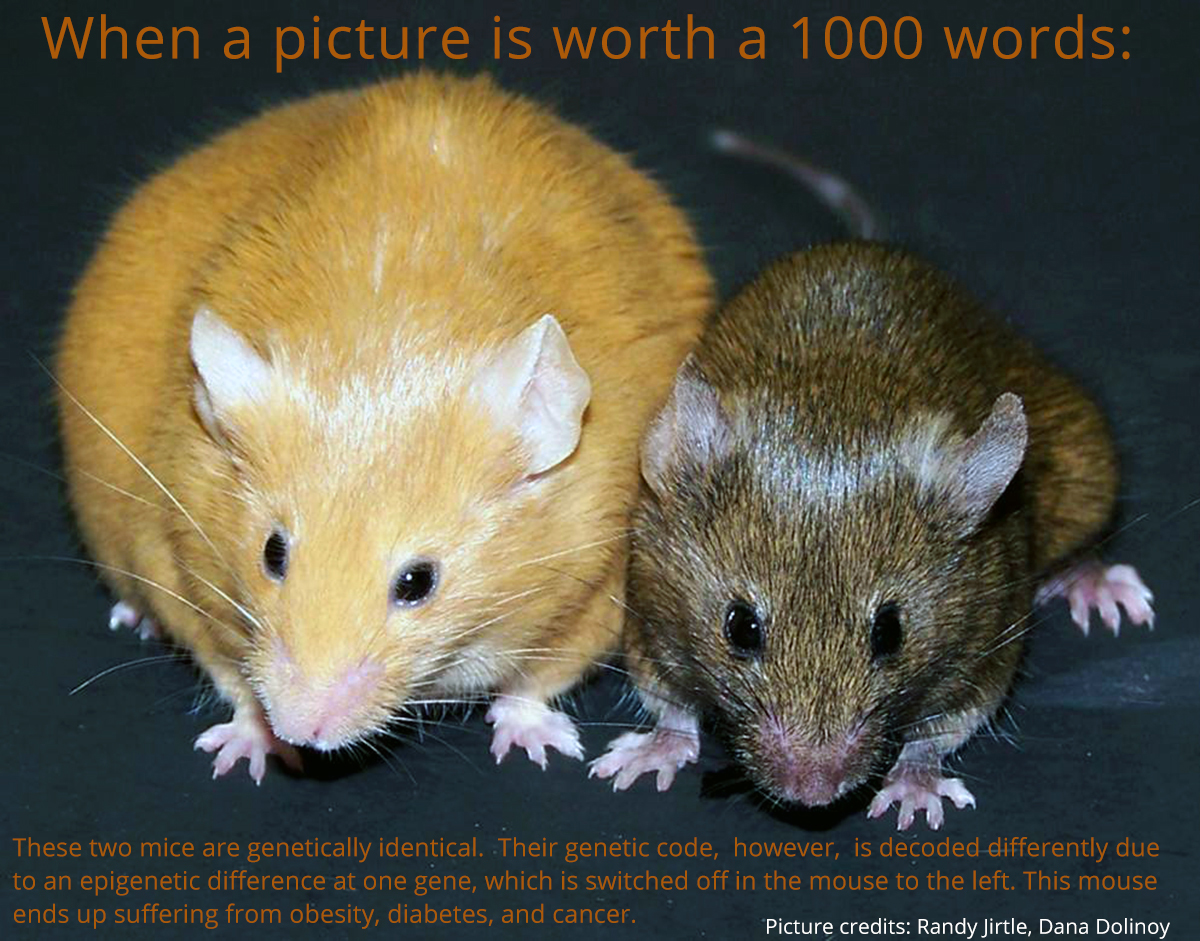Listed here are the most frequently asked questions and their answers. This page is continuously updated and additional Q&A are added periodically.
Epigenetic abnormalities can lead to cancer as often as genetic aberrations, if not more frequently. This, we are discovering, is even true for cancers that were classically viewed as purely mutation-driven, such as those caused by cigarette smoking. Moreover, some of the genes frequently mutated in cancers, for example BRCA1 in breast and ovarian cancers or MLL in leukemia, encode for epigenetic enzymes, thus bringing epigenetics into play in what started as a genetic disease.
Epigenetics can be defined as the study of changes in gene activity that are heritable (passed on from one cellular generation to another) and that do not involve a (genetic) change in the DNA sequence. The prefix “epi” in epigenetics literally means “in addition to” or “above” genetics. Thus, epigenetics regroups events that shape a gene’s activity in addition to, or above those encoded in the gene’s DNA sequence.
Conrad Waddington is the scientist who coined the term epigenetics in 1942 as the branch of biology which studies the causal interactions between genes and their products which bring the phenotype (visible features or traits) into being. As this concept overlaps with that of genetics, a better definition may be that proposed by Shelley Berger, Tony Kouzarides, Ramin Shiekhattar, and Ali Shilatifard who in 2009 stated “an epigenetic trait is a stably heritable phenotype resulting from changes in a chromosome without alterations in the DNA sequence“. The Cancer Epigenetics Society’s take is somewhat different and we define epigenetics as “the sum of chromosomal changes that do not involve changes in the DNA sequence and that contribute to a relatively stably heritable phenotype“. The relative stability (or plasticity) of epigenetic inheritance, we think, is of paramount importance both from an evolutionary point of view as well as from a cancer therapeutic perspective.
What determines the behavior of a cell, for example whether a cell will divide or not, whether a cell will fulfill a function, or whether a cell will undergo programmed cell death or instead acquire features reminiscent of immortality (a hallmark of cancer), is entirely determined by the concerted activities of a cell’s genes. The activity of any given gene is primarily determined by DNA sequences that are juxtaposed to the gene, such as those that make up a functional unit named the promoter, which as the name indicates, promotes the associated gene’s activity. The promoter enables a gene to be active by binding to proteins that either facilitate or drive the gene’s activity. Thus, to be fully functional, a gene’s promoter has to be accessible to the proteins that need to bind to it. While genetic abnormalities that change the DNA sequence of a gene or of its promoter such as those that result from mutations, deletions, or translocations (whereby two chromosomal fragments are fused together) can change a gene’s activity, we are discovering that there are several phenomena that can affect a gene’s activity, independently of the actual DNA sequence. Thus, in many of these instances, while the DNA sequence is intact and presents no abnormalities whatsoever, the chemistry that is superimposed to a gene’s DNA sequence, or that of the chromosomal components where the gene resides, can be changed to the extent that a gene’s promoter is no longer accessible to its binding proteins, or instead, accessible all or most of the time as opposed to the normal state which is only during certain periods of the cell’s life cycle. In other instances a gene is active, but before it can translate into a product (a protein) that regulates cellular functions, it is prevented from proceeding to this step by the actions of abnormally expressed RNA molecules such as miRNAs (microRNAs) or lncRNA (long non-coding RNAs). Together, the processes that affect a gene’s activity without affected its DNA sequence constitute the epigenetics of a cell.
No, membership is available to anyone with an interest in cancer or epigenetics.
Yes. The Society offers member-restricted contents not only to cancer and epigenetics professionals but also to the public at large that are members of the Society.
Depending on seniority at the Society and level of contribution to cancer or epigenetics, current membership categories include Junior Member, Assistant Member, Associate Member, and full Member for cancer and epigenetics professionals, and Affiliate Member for cancer patients or other interested individuals.
Application to professional membership categories includes a current curriculum vitae that includes profession and position, a list of all research publications and estimated total number of associated citations (these may be obtained from citation databases such as https://scholar.google.com/), as well as meeting contributions, patents, clinical trials, invited seminars, grant committee participation, and consulting and advisory capacity at scientific, medical, or pharmaceutical organizations or companies.
Six journals are affiliated with the Society; these are Cancer Epigenetics, the Journal of Cancer Epigenetics, the Cancer Epigenetics Journal, Clinical Cancer Epigenetics, the Journal of Clinical Cancer Epigenetics, and Clinical Cancer Epigenetics Journal.
Breakthroughs in basic, translational, preclinical, or clinical research in the field of epigenetics with relevance to cancer will be considered for publication. Please see the journals’ portals for additional information on journals’ scope and goals, and detailed instructions on how to submit or access articles.


